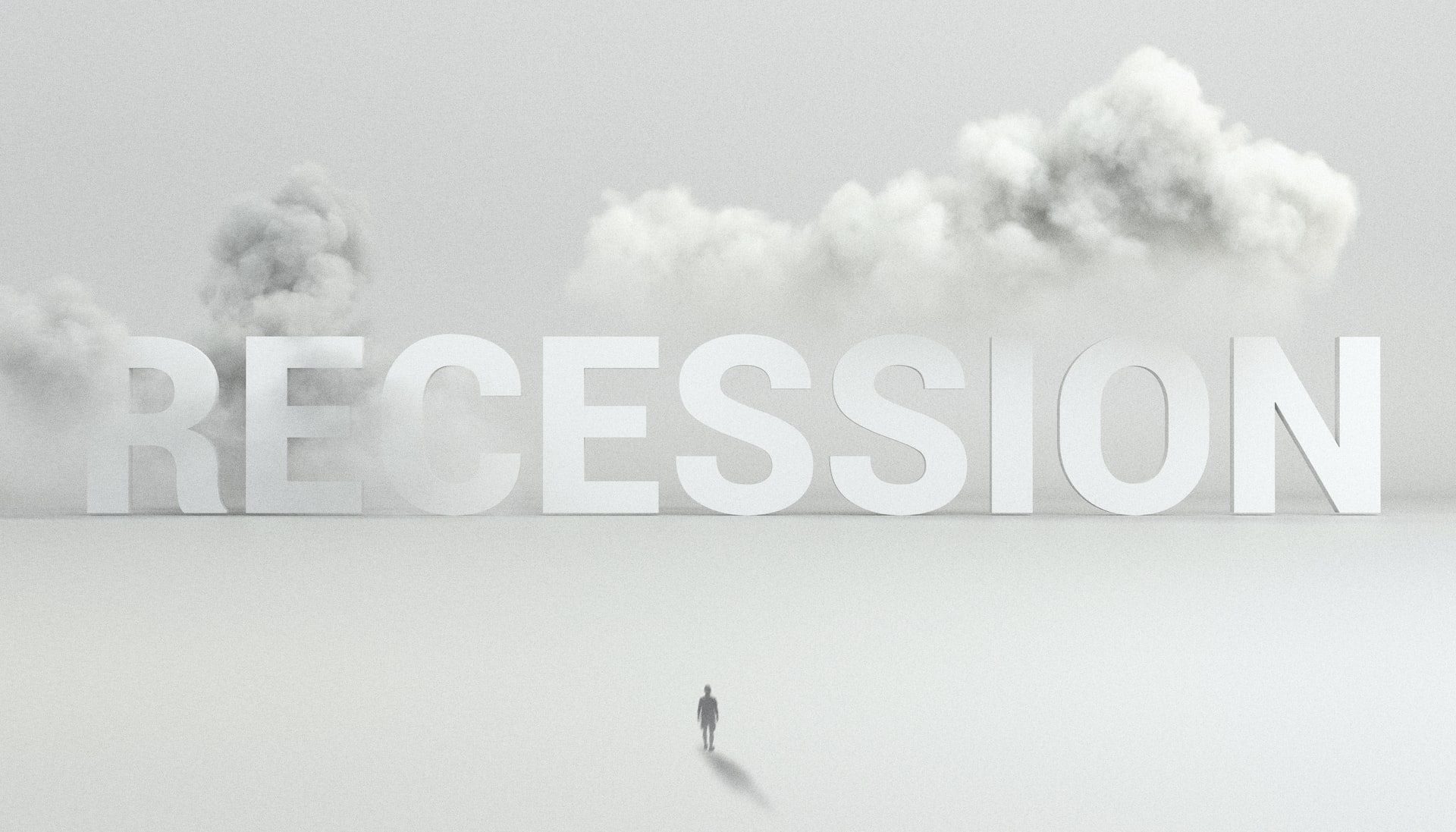In life, two big events often stand out: marriage or mortgage, getting married, and owning a home. They both represent love, stability, and building a better future. But for many couples, deciding which one to prioritize can be tough and sometimes lead to disagreements. In this expert roundup, we’re here to help you figure out the balance between “Getting Married” and “Buying a House.”
Marriage or mortgage: budgeting for a mortgage
When it comes to budgeting for a mortgage, it’s important to emphasize the importance of careful planning and financial foresight. Buying a home is a significant financial commitment, and it’s crucial to understand the costs involved beyond the down payment. Financial advisors recommend starting by evaluating your current financial situation, including your income, expenses, and any outstanding debts. This will help you determine how much you can comfortably allocate toward your mortgage payments each month.
Additionally, it’s essential to factor in other homeownership expenses, such as property taxes, insurance, maintenance, and utilities. These costs can vary depending on the location and size of your home, so our experts advise researching these expenses in your specific area.
One common budgeting strategy is the 28/36 rule, which suggests that your mortgage payment should not exceed 28% of your gross monthly income, and your total debt payments (including the mortgage) should not exceed 36%. This guideline can serve as a helpful starting point when considering how much house you can afford.
Financial experts also stress the importance of building an emergency fund, a home warranty, and having a financial cushion for unexpected expenses that may arise during homeownership. By carefully budgeting and saving, you can make informed decisions about buying a home while still achieving your financial goals and planning for other significant life events, like a wedding.
How far in advance should couples start planning and saving for both a wedding and a home purchase to ensure a smooth and financially sound transition?
With planning for any major life event such as a wedding and a home, there are different variables to see how much is manageable to save monthly and what are the amounts you want to spend. The first step would be to figure out a budget for the wedding and to figure out how much you want to spend on your first home.
If you are buying the home to live in you only require 5% down payment on the first 500,000 dollars and 10% on any amount over the 500,000 dollars on the home. If you want to spend 400,000 dollars you would require 20,000 dollars down payment. If you wanted to spend 600,000 dollars on a home you would need 5% up to the first 500,000 dollars, 25,000 and 10% on any amount over the 500,000 , an additional 100k mortgage would need 10,000 dollars more down payment for a total of 35,000 on a 600,000 dollar home.
If you want to spend 400,000 dollars on a home and want to do the minimum required which can come as your own savings or as a gift you would be required 5% so 20,000 dollars. For a wedding you would want to decide how much you want to budget for that and if that is 10,000 dollars and the home is 20,000 dollars you would then want to see how much disposable income you have monthly and what costs you are able to cut back and save to see how much a month is affordable to look at saving. If you are able to save 1500 a month then with 20 months saving 1500 dollars you would have the 30,000 dollars required for the home and wedding.
Jodi Whalen – Whalen Mortgages
What types of mortgage loans are most suitable for first-time homebuyers looking to balance their wedding expenses and homeownership goals?
Purchasing a home and planning a wedding are major life events that can be financially stressful. By opting for a mortgage with low upfront costs, first-time buyers can ease some of the immediate financial pressure, allowing them to enjoy buying a home and planning their wedding.
A conventional, 30-year fixed-rate loan is popular with first-time homebuyers looking to balance wedding expenses and homeownership goals. Here are some benefits:
– A low-interest rate and monthly payment that won’t change
– A minimum down payment of 3% of the purchase price
– A credit score of 620 or higher
You can also use wedding gift funds towards the down payment and closing costs. First, you’ll need to get the following documentation and provide them to your lender.
– A copy of your marriage license
– A bank statement showing you deposited the gifts to your bank within 90 days of your wedding
– A signed letter listing the gifts and stating they’re from your wedding
When choosing a mortgage, it’s crucial to consider the immediate financial constraints of wedding expenses and the long-term affordability of homeownership. Work with a lender who will guide you through the options and help you find a loan that aligns with your financial goals.
Jim Quist – NewCastle Home Loans
Here are some types of mortgage loans that may be suitable for such individuals:
FHA Loans (Federal Housing Administration): FHA loans are a popular choice for first-time homebuyers because they require a lower down payment (typically 3.5% of the purchase price). This can help buyers conserve cash for wedding expenses.
First-Time Homebuyer Programs: Many states and localities offer first-time homebuyer programs that provide down payment assistance, lower interest rates, or other incentives to help you buy your first home.
HomeReady and Home Possible Loans: These programs are designed to assist low- to moderate-income borrowers. They have low down payment requirements and flexible eligibility criteria, making them a good fit.
David Brewer – Envoy Mortgages
How can couples effectively balance saving for a down payment on a home with the expenses of planning a wedding?
Saving for a house down payment alongside a wedding can be challenging yet rewarding given these are two important milestones. But it is doable with clear goals and enough discipline.
Weddings are undoubtedly special events, but they are once-off whereas buying a home is a long-term investment. Financially, it is a wiser decision to prioritize a home deposit over a wedding.
For example, an average wedding costs $30,000, according to Bankrate. Cutting this cost by $10,000 and putting it toward a down payment could save you $21,000 in mortgage interest across the life of a loan*. With a long-term plan in mind, couples can certainly afford both.
Foremost, be clear about your financial expectations. Set up a ‘date night’ to discuss these two goals together – what do you want, what can you afford, and how much will they cost?
Once you have established clear goals with timelines, work towards them by putting money into dedicated ‘wedding’ and ‘home’ savings accounts. Consider making it harder to access these funds by putting them in a joint separate account or locking the account if possible. Lastly, remember weddings don’t always need to be expensive. What costs are you willing to compromise on? There are many alternatives to extravagant weddings nowadays such as smaller and more intimate ceremonies, getting married in nature, DIY decorations or alternative venues.
Australia’s online mortgage broker – UNO Home Loans
What potential pitfalls should couples be aware of when managing their finances for a wedding and a home?
I think the biggest pitfalls I see for couples are the money issues surrounding family members, as these often don’t get discussed in the way that budgeting, debt, saving, and spending priorities do. Be sure to talk with your spouse about how you’ll navigate loaning money to family members, when and how you’ll pay for gifts, and the potential financial burdens of caring for parents as they age.
Lauren Bowling – Financial Best Life
Are there specific financial strategies or tools that couples can use to save money and make smart financial decisions during this dual planning process?
When contemplating either a marriage or a mortgage, it’s not an either/or equation, but a synergy that can be achieved through what I term the “Life Portfolio.”
Imagine for a moment that you’re not just life partners but also co-managers of a complex investment portfolio where assets like love, property, and time are all interlinked.
The first tool in managing your Life Portfolio is the ‘Priority Matrix,’ a grid where you rank life goals, from the wedding venue to the down payment, on scales of urgency and importance. This visually impactful device allows you to allocate resources judiciously, ensuring that your aspirations in love do not cannibalize those of homeownership, or vice versa.
Second, implement a ‘Flex Budget,’ a more dynamic version of a traditional budget where certain expenses can be traded off month-to-month based on immediate needs without jeopardizing long-term plans.
Lastly, don’t overlook ‘Emotional Equity.’ Take time to check-in and reassess your Life Portfolio regularly, to ensure that both parties are still aligned with the shared objectives. In balancing the joys and responsibilities that come with marriage and homeownership, your Life Portfolio becomes a strategy for not just financial stability, but also relational harmony.
True Tamplin – Finance Strategists
Wedding planning
Turning our attention to wedding planning, some experts emphasize the significance of creating a realistic budget from the outset. Weddings can be as simple or as extravagant as you envision, but understanding your financial boundaries is crucial. Start by discussing your priorities as a couple and determining how much you’re comfortable spending on your big day. Wedding planners advise allocating funds to various aspects of the wedding, such as the venue, catering, attire, decorations, and entertainment.
It’s important to be mindful of hidden costs that can easily add up, such as service fees, taxes, and gratuities. Many couples find it helpful to create a detailed wedding budget spreadsheet that tracks expenses to avoid overspending.
To maximize your budget, consider alternative options, such as weekday weddings or off-peak season dates, which can often result in cost savings. DIY projects and seeking out local vendors can also help stretch your wedding dollars without compromising on quality.
Wedding planning experts also recommend keeping open communication with your partner throughout the process, ensuring you’re both on the same page regarding your priorities and expenditures. By creating a well-structured budget and sticking to it, you can have the wedding of your dreams while still staying financially responsible and leaving room for other life goals, such as homeownership. In the end, it’s about crafting a memorable and meaningful celebration that reflects your love and values without breaking the bank.
What common wedding expenses do couples tend to overspend on, and how can they avoid these budget pitfalls?
Every couple values different things when planning their wedding, so one couple might see a high price tag as overpaying where another one sees it as worth it.
For example, one couple might prioritize photography, and spend $15k to get the types of images they want, whereas another couple might see photos as less important (and, of course, might have a tighter wedding budget, and hire a less expensive photographer). I don’t think you can overpay for photography if the aesthetic and level of customer service are a match to your needs, but I’ve seen incredible photos from wedding photographers that cost $7k for the day.
If couples are looking to cut costs, cut favors. Most get left behind or trashed soon after the wedding.
Another area that people splurge on unnecessarily is the champagne toast. Scratch it, and let everyone raise their glasses of whatever they’re currently drinking instead. Not everyone’s into the bubbly, and many guests leave it unfinished.
Consider your guest count. That’s the quickest way to save a lot of money. You don’t have to have 300 guests just to please your family. In fact, when you have a smaller wedding, you’re able to spend a little more per person.
Save money with wedding flowers by going with what’s in season. Out-of-season flowers cost more because of the extra expense to produce them under artificial or man-made conditions.
To avoid overspending on your wedding, decide what’s important to you and skip all the rest. It’s your wedding day, so do it your way.
Kirsten Palladino – Equally Wed
Are there specific seasons or times of the year when couples can save on wedding costs, and how can they take advantage of these opportunities?
Weddings can be costly, but strategic planning can help you save. One of the biggest opportunities for savings is timing. Opting for off-peak seasons, typically late November through March, or weekdays can result in discounted venue and vendor prices. Some venues even offer package deals during these periods, including extras like free centerpieces or cakes. Being flexible with your date can also lead to last-minute booking discounts. Additionally, a smaller guest list during off-seasons can save on food and drink costs.
Floral expenses can be trimmed by choosing single-flower vases, local flowers, or even silk alternatives. When it comes to attire, consider renting or borrowing dresses and tuxedos. Last season’s styles can also offer savings without compromising on elegance. Venues are generally the most expensive aspect, so inquire about weekday or off-season discounts. Local wedding planners often have insider tips on the best times to book and how to maximize savings. Always check the weather for off-season dates and consider wedding insurance for added security. By being mindful of each budget area, you can achieve a memorable wedding without breaking the bank.
Inspired Bride Team – Inspired Bride
There are definitely specific seasons or times of the year couples can save on wedding costs:
November to February are considered off-peak months for weddings in San Diego. Otherwise, in most of the cities in America, couples can save on wedding costs during the winter months. In tropical areas though, the rainy season might be less popular for weddings and venues and vendors are often more willing to negotiate prices during these less popular months. In general, definitely avoid peak wedding dates, such as holidays and significant weekends. For example Valentine’s Day, Memorial Day Weekend, Labor Day weekend or New Year’s Eve) as venues and vendors often charge more premium rates for these dates.
Choose a weekday wedding versus a weekend one. Many wedding venues and vendors offer low rates for weddings held on Mondays through Thursdays and they are often willing to negotiate prices during these less popular times. Having your wedding earlier in the day or in the afternoon can also be more cost-effective than an evening wedding. This can give you the option of serving a brunch or a lunch menu, which is usually less expensive than a formal dinner. Last thing, if you know your wedding date well in advance, try to book your vendors as early as possible. Prices tend to rise over time due to inflation and increased demand, so locking rates then can save you money.
Willmus Weddings – San Diego Wedding Planner
What are some practical tips for setting a realistic budget for both a wedding and a home purchase?
Set A Budget & Timeline
The biggest tip for setting a budget for a wedding or buying a home is deciding how much you need to save and how much time you have. Once you know the total amount and time you can work backwards to set a monthly goal. This proactive approach not only empowers you to make informed financial decisions but also ensures that you stay on track to achieve your dreams while minimizing stress.
Reduce Your Spending & Increase Your Income
To make your wedding or home purchase attainable, consider a dual strategy of reducing your spending and increasing your income. Begin by scrutinizing your expenses, identifying areas where you can cut back or eliminate non-essential purchases. This might involve packing lunch instead of dining out, canceling unused subscriptions, or buying generic brands. Simultaneously, explore opportunities to boost your income, such as taking on a part-time job, freelancing, or an online side hustle. Combining these two approaches will not only help you save more efficiently but also accelerate your progress toward your financial goals.
Monitor Your Spending Throughout The Month
Get in the habit of tracking your purchases at least once a month. This will help you to visually see all of your purchases which becomes a built-in accountability partner, it also allows you to make adjustments throughout the month if you are going over in a specific category.
Kelly Anne Smith – Freedom In A Budget
Conclusion
In summary, the decision between “Marriage or Mortgage” requires careful thought and planning. Budgeting for a mortgage involves understanding your financial situation, while wedding planning demands a realistic budget that aligns with your priorities. Both paths can be navigated successfully with prudent financial strategies and open communication. Ultimately, the choice you make should reflect your personal goals and values, ensuring that your journey is filled with love, commitment, and financial responsibility. There’s no one-size-fits-all answer, and the path you choose is as unique as your love story.




